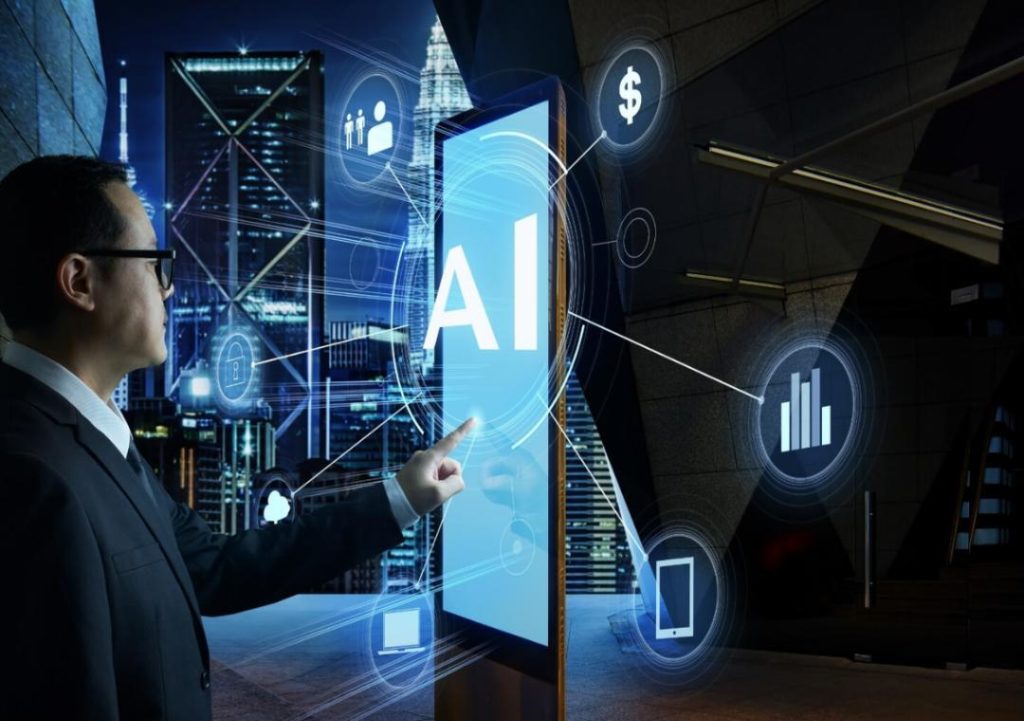
AI & ML now power over 77% of business processes
In today’s digital-first world, businesses that fail to adapt to the latest technological advancements are likely to fall behind the competition. Artificial Intelligence (AI) and Machine Learning (ML) are no longer futuristic concepts – they’re operational essentials. The latest statistics reveal that over 77% of enterprises are now using AI/ML to improve productivity, reduce costs, and personalize user experiences. This shift is no longer optional; it’s fundamental to staying competitive in the ever-evolving digital landscape.
The importance of AI and ML in business processes cannot be overstated. These technologies have the potential to transform every aspect of an organization, from customer support to supply chain management. By automating repetitive tasks, analyzing vast amounts of data, and making data-driven decisions, AI/ML is revolutionizing the way businesses operate.
Automating Customer Support
One of the most significant areas where AI/ML is making a significant impact is in customer support. Chatbots and virtual assistants powered by AI/ML are now an essential part of many companies’ customer service strategies. These machines can handle a high volume of customer queries, 24/7, freeing up human customer support agents to focus on more complex and emotionally demanding issues.
AI-powered chatbots can also be programmed to recognize customer intent, respond to common inquiries, and even escalate issues to human agents when necessary. This not only improves customer satisfaction but also reduces the workload of human customer support agents, allowing them to focus on higher-value tasks.
Real-time Fraud Detection
Another area where AI/ML is making a significant impact is in real-time fraud detection. Traditional fraud detection methods rely on manual reviews and rule-based systems, which can be time-consuming and prone to errors. AI/ML-powered fraud detection systems, on the other hand, use machine learning algorithms to analyze vast amounts of data in real-time, identifying suspicious patterns and anomalies.
These systems can detect fraud in real-time, preventing financial losses and reducing the risk of data breaches. AI/ML-powered fraud detection is particularly effective in detecting complex fraud schemes, such as identity theft and credit card fraud.
Predictive Maintenance
AI/ML is also transforming the way businesses approach maintenance and repair. Predictive maintenance, which uses machine learning algorithms to analyze sensor data and predict when equipment is likely to fail, is now being used by industries such as manufacturing, aerospace, and healthcare.
Predictive maintenance not only reduces downtime and extends the lifespan of equipment but also improves safety and reduces maintenance costs. AI/ML-powered predictive maintenance is particularly effective in industries where equipment failure can have serious consequences, such as in healthcare where equipment failure can put patient lives at risk.
Personalizing User Experiences
AI/ML is also being used to personalize user experiences across various industries. For example, e-commerce companies are using AI-powered recommendation engines to suggest products to customers based on their browsing and purchasing history.
AI/ML-powered personalization is not limited to e-commerce. Banks and financial institutions are using AI-powered chatbots to offer personalized financial advice and recommendations to customers. Healthcare providers are using AI-powered systems to personalize treatment plans based on patient data and medical history.
Challenges and Opportunities
While AI/ML has the potential to transform every aspect of business, there are challenges and opportunities associated with its adoption. One of the biggest challenges is ensuring data quality and integrity. AI/ML systems are only as good as the data they’re trained on, and poor-quality data can lead to inaccurate predictions and decisions.
Another challenge is ensuring transparency and explainability. AI/ML systems can be opaque, making it difficult to understand why a particular decision was made. This can lead to mistrust and skepticism among customers and employees.
Despite these challenges, the opportunities associated with AI/ML adoption are vast. According to a recent report by Growth Jockey, the global AI/ML market is expected to reach $190 billion by 2025, growing at a compound annual growth rate (CAGR) of 38%.
Conclusion
In conclusion, AI and ML are no longer futuristic concepts – they’re operational essentials. The latest statistics reveal that over 77% of enterprises are now using AI/ML to improve productivity, reduce costs, and personalize user experiences. The shift to AI/ML is fundamental to staying competitive in a digital-first world.
As businesses continue to adopt AI/ML, it’s essential to ensure data quality and integrity, transparency, and explainability. By doing so, businesses can unlock the full potential of AI/ML, transforming every aspect of their operations and staying ahead of the competition.
Source: https://www.growthjockey.com/blogs/what-is-ai-and-ml-how-is-it-important






